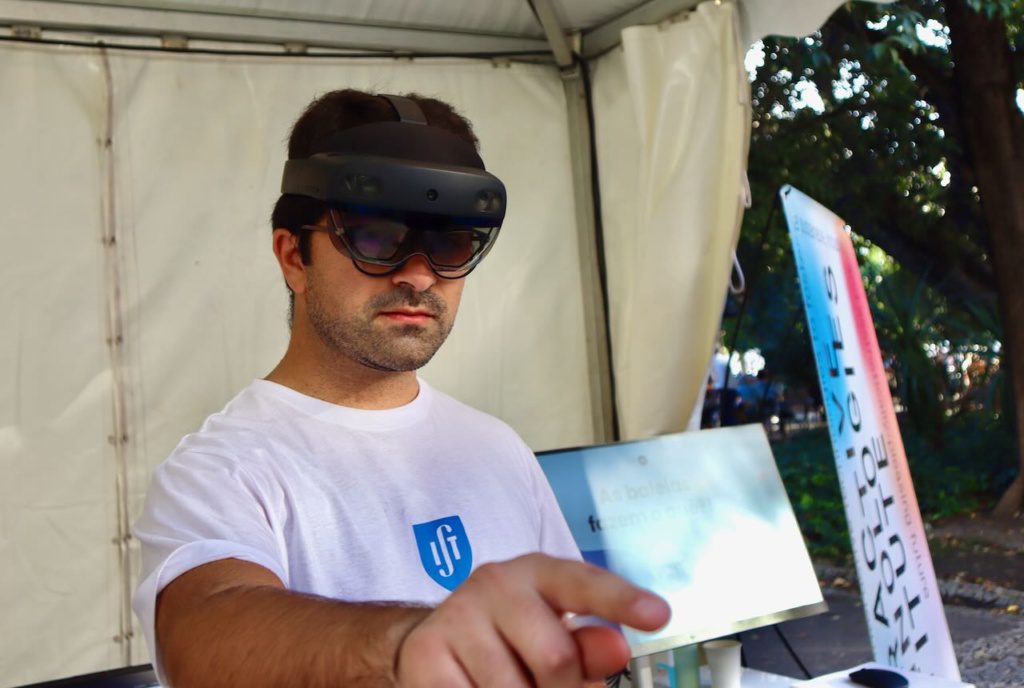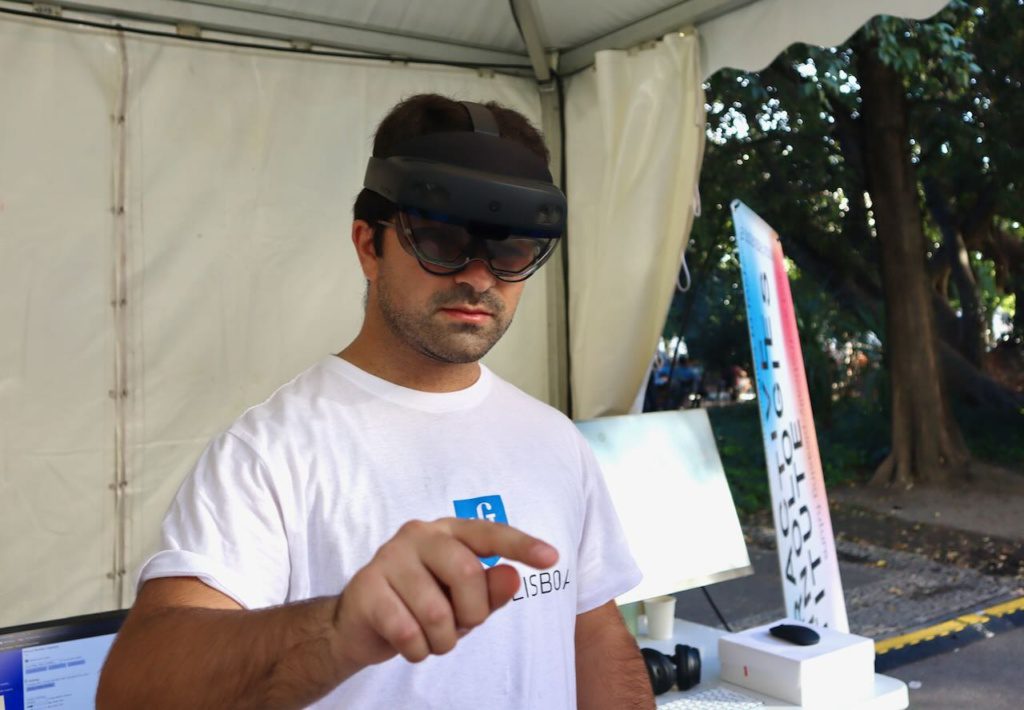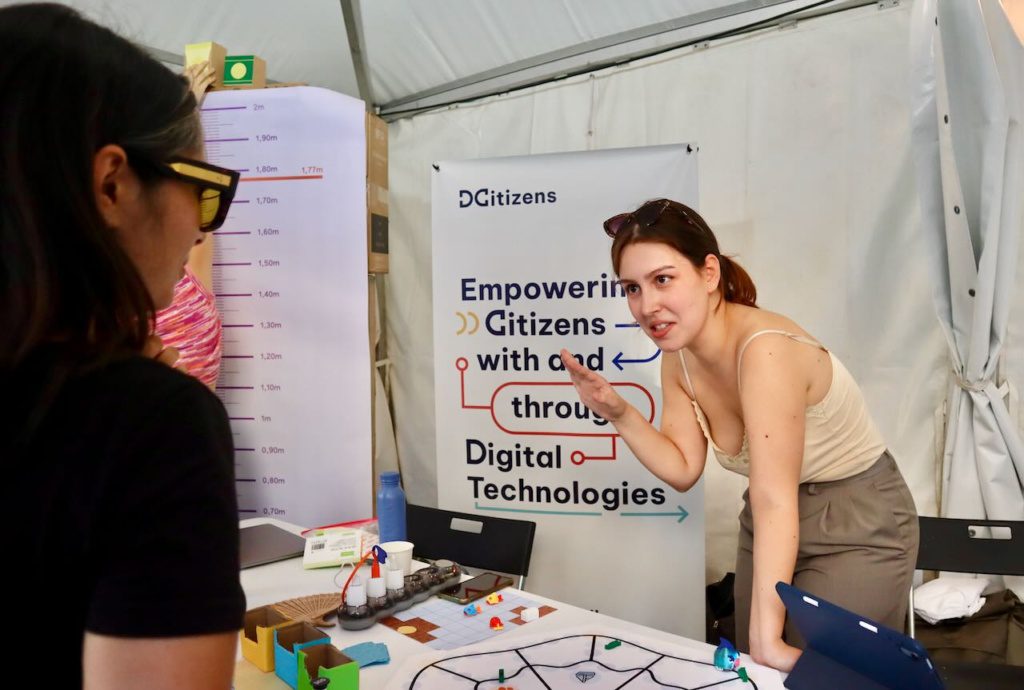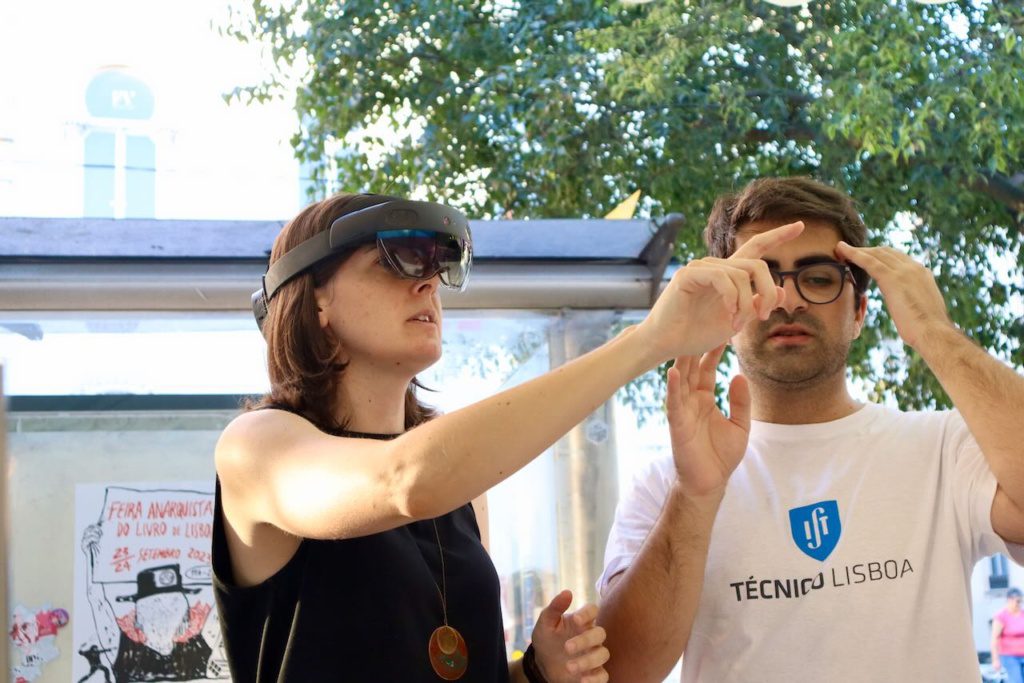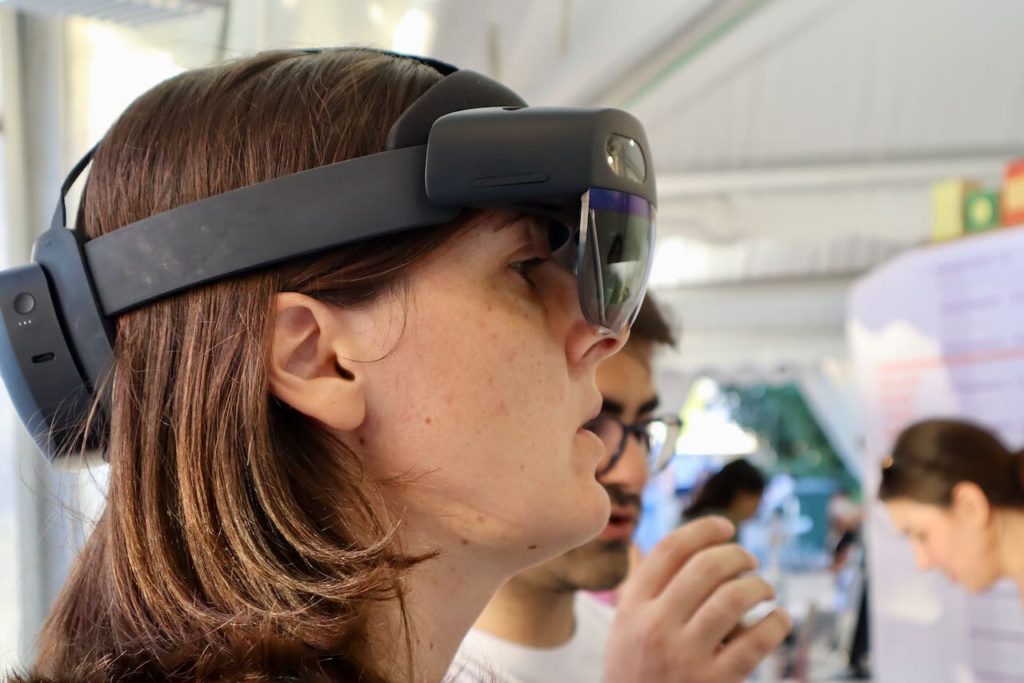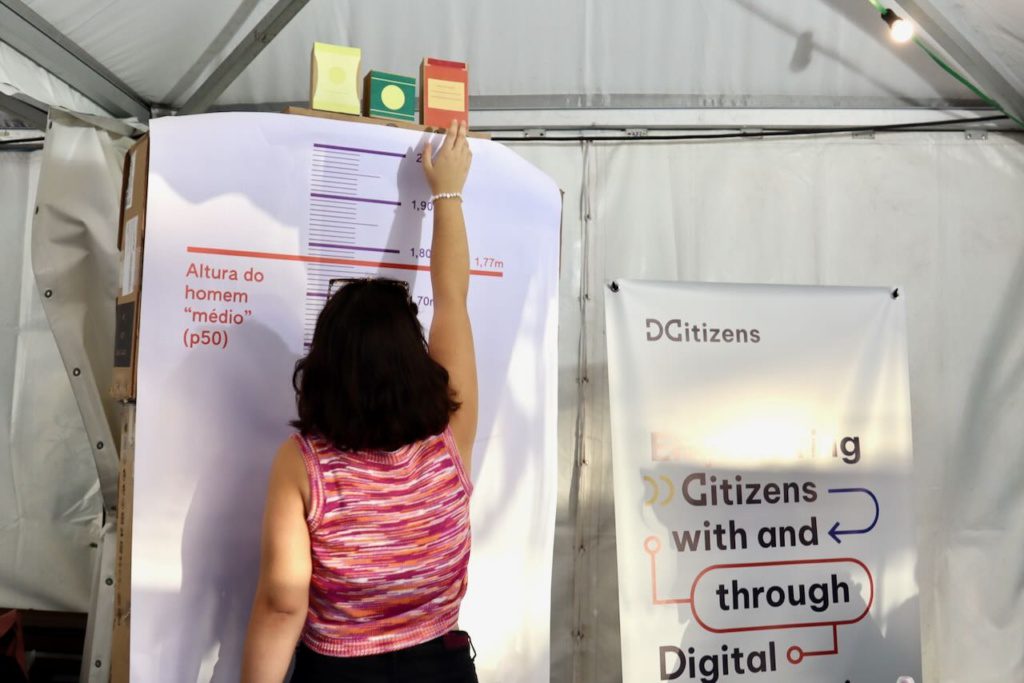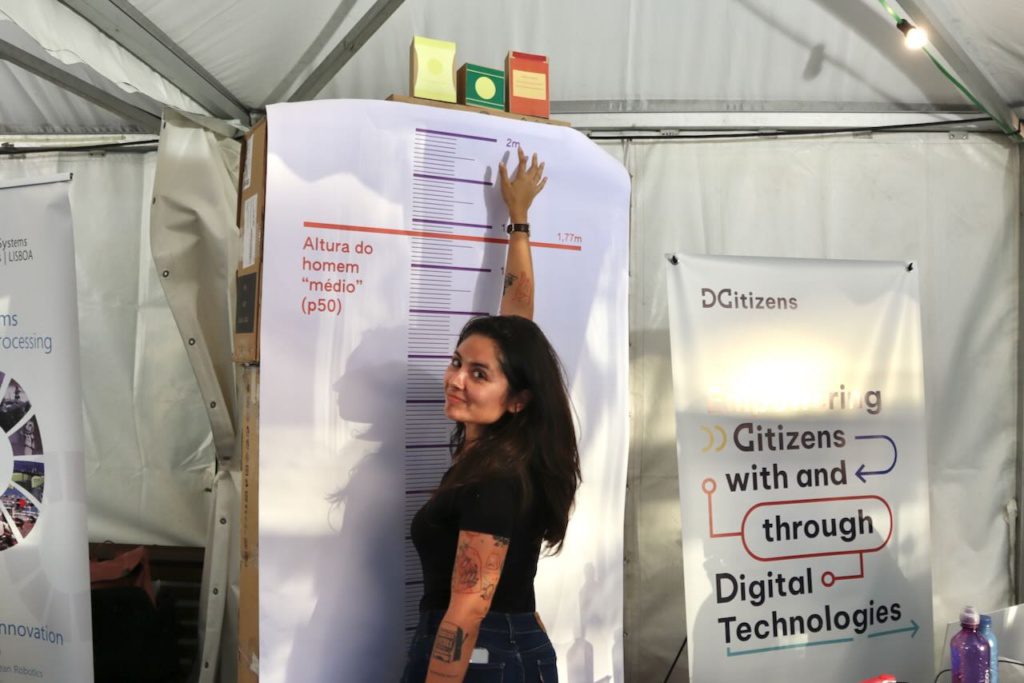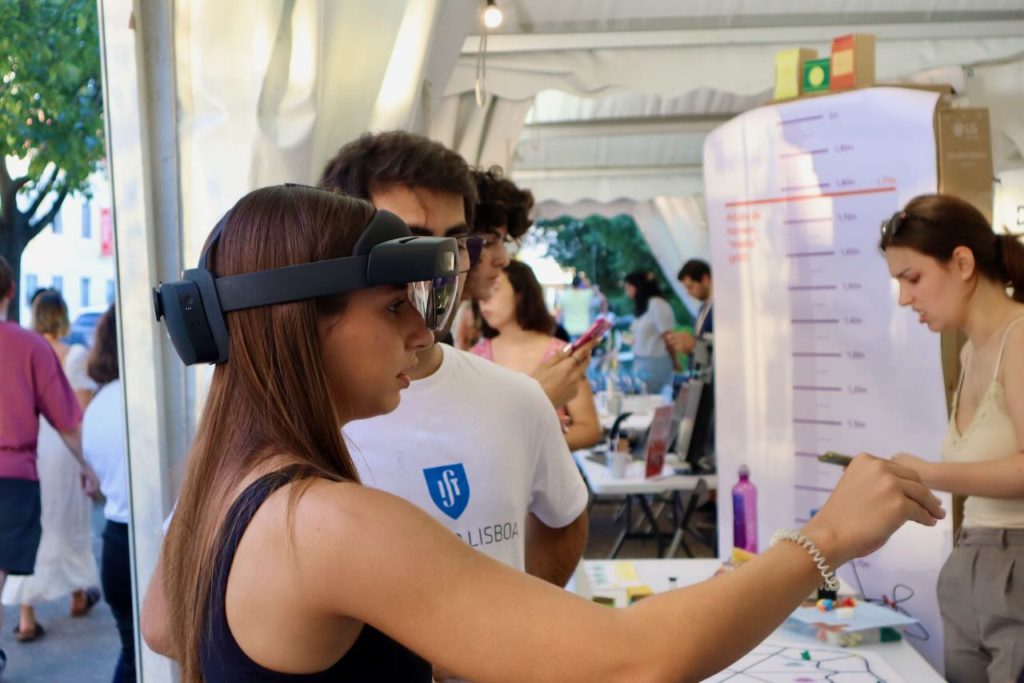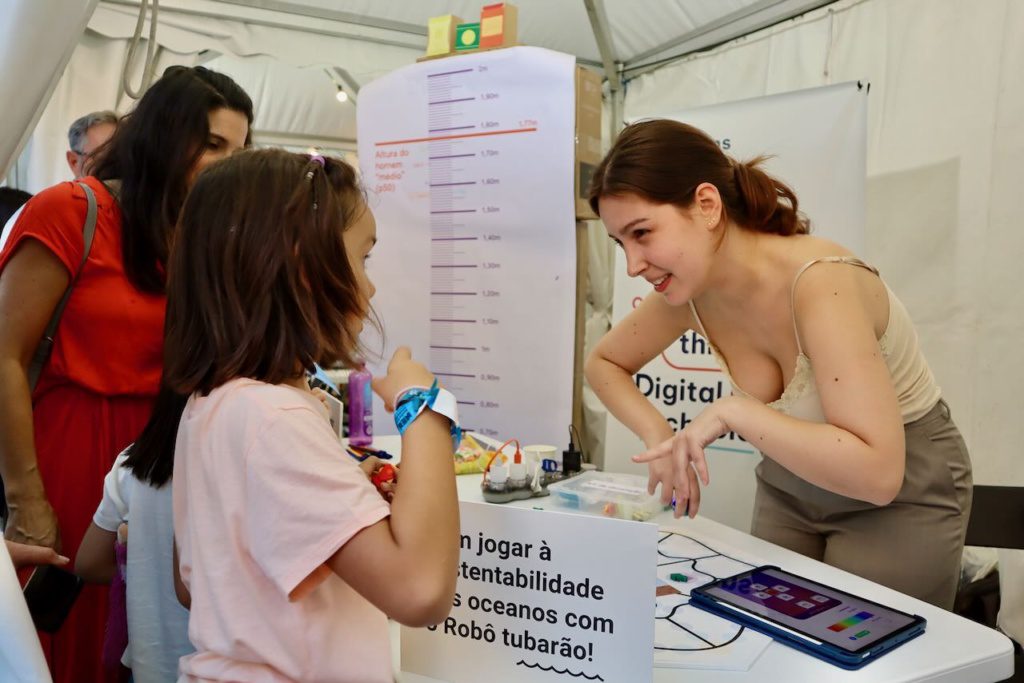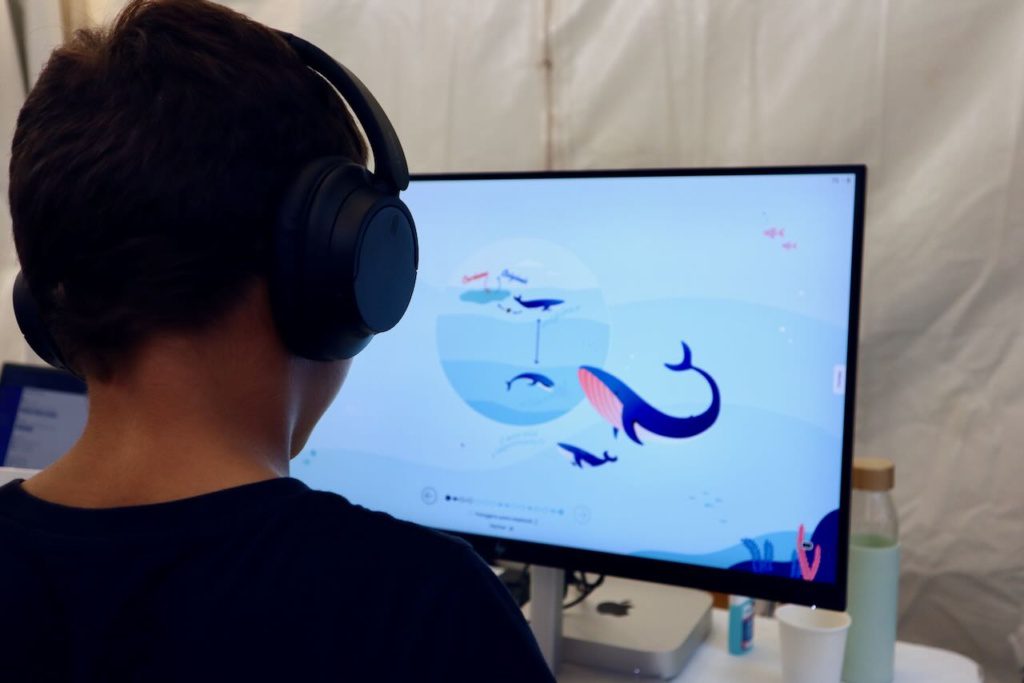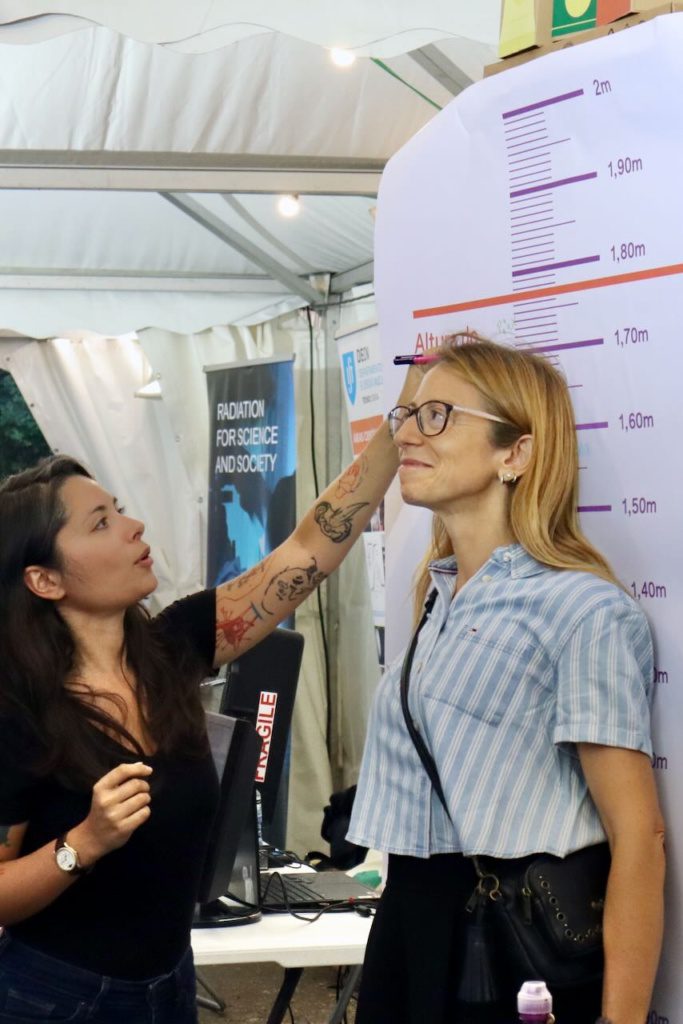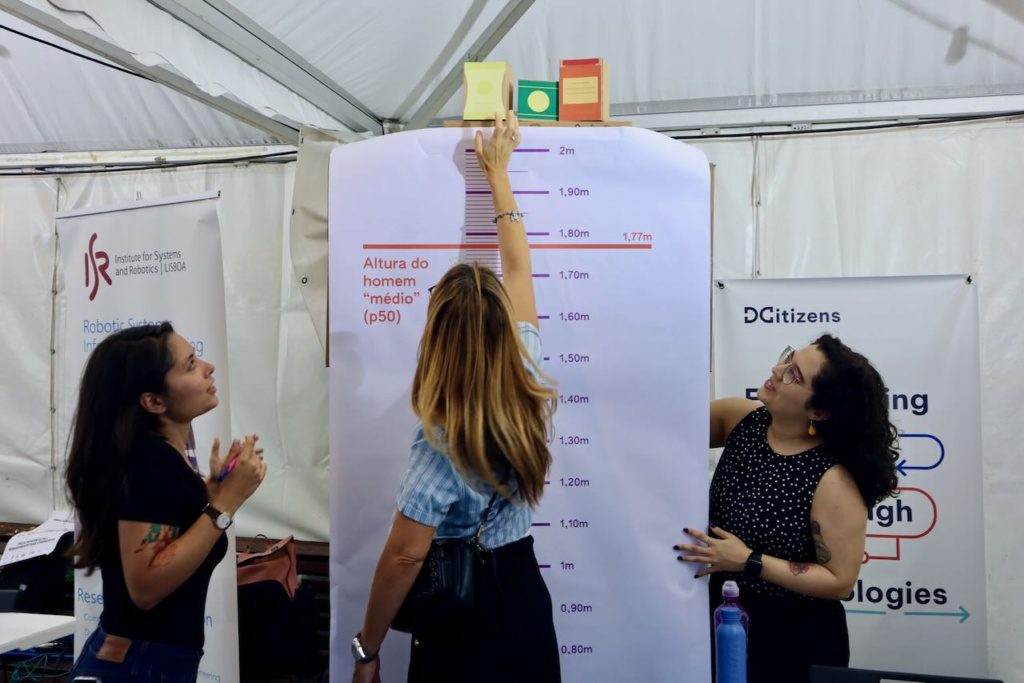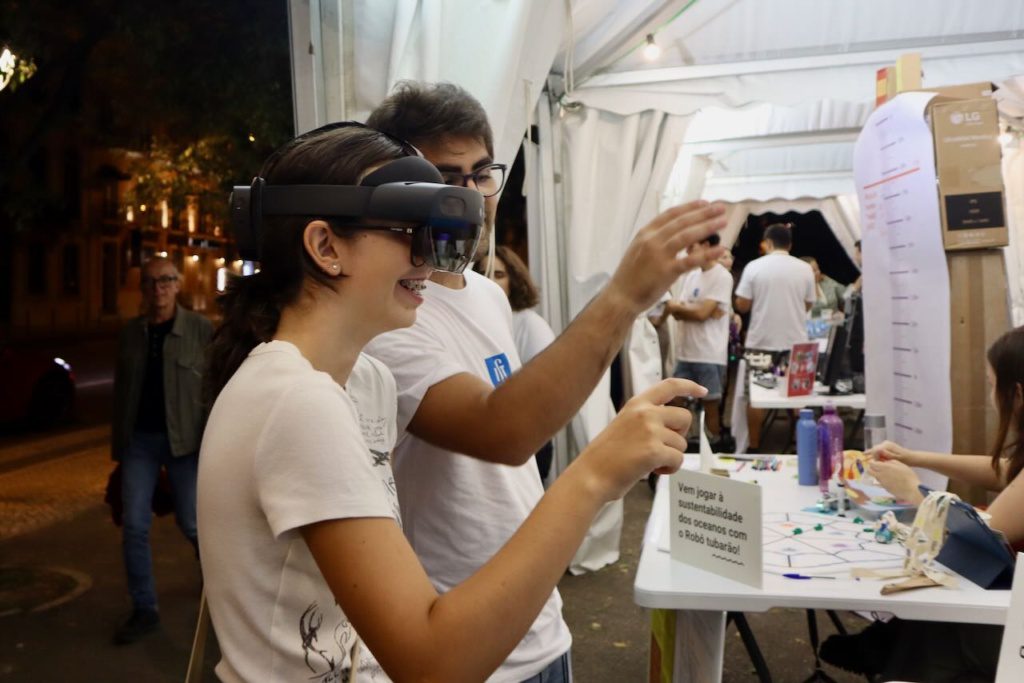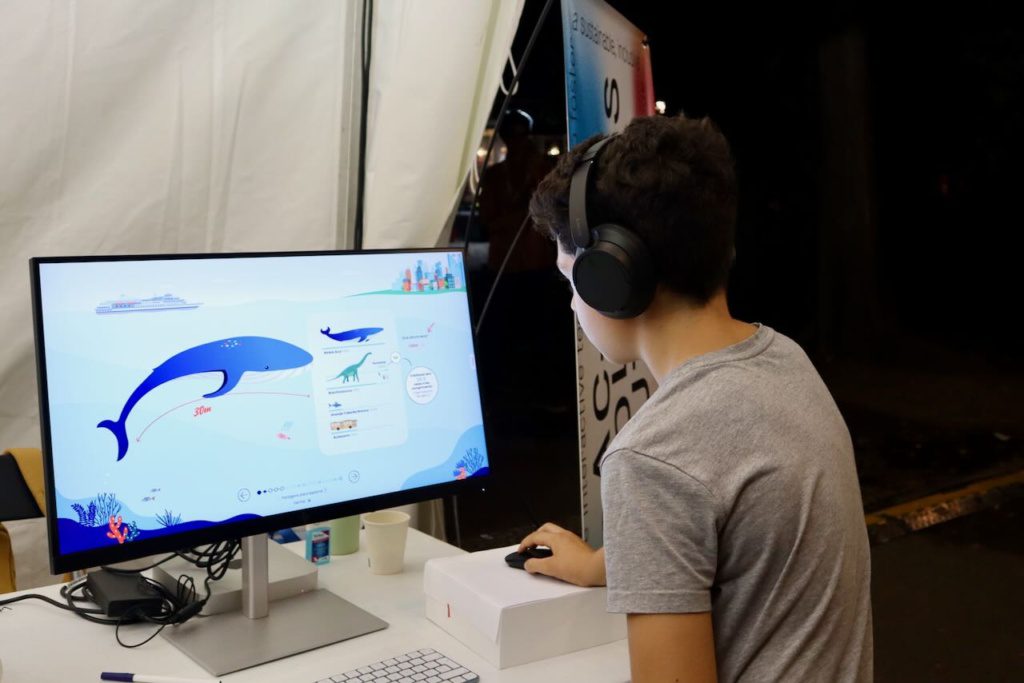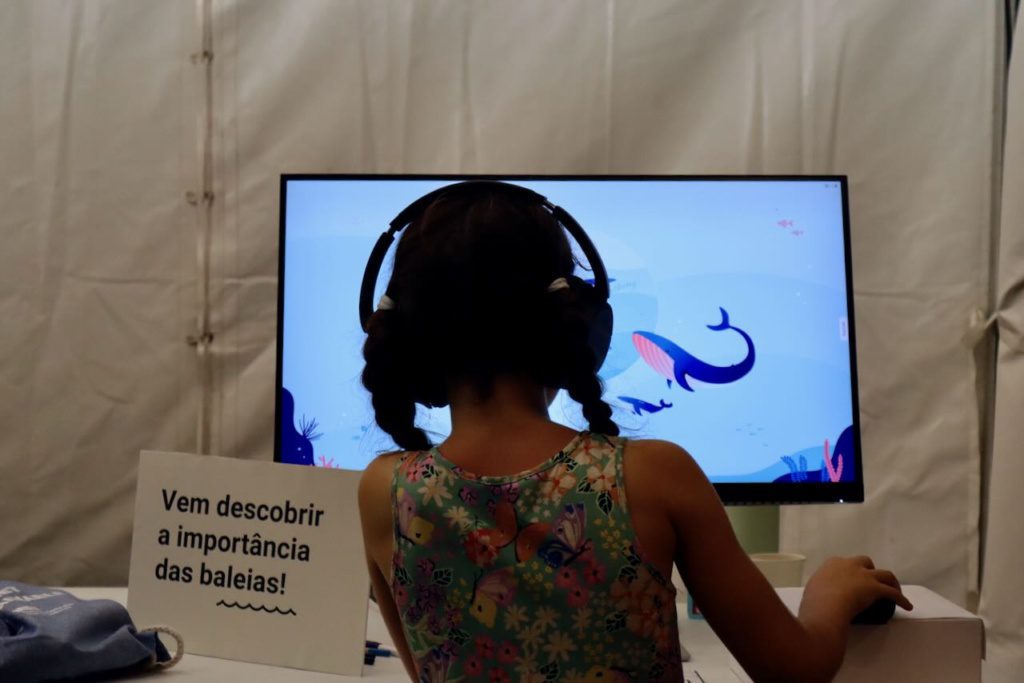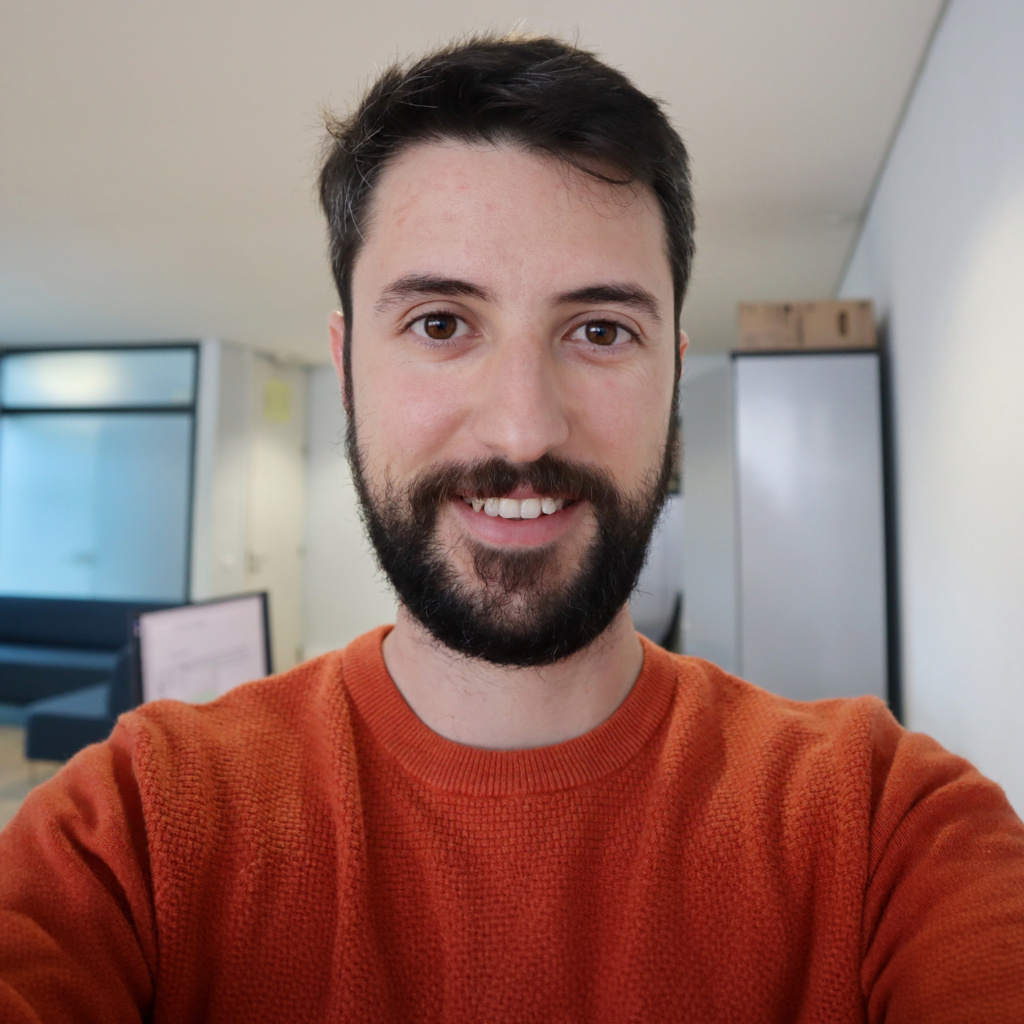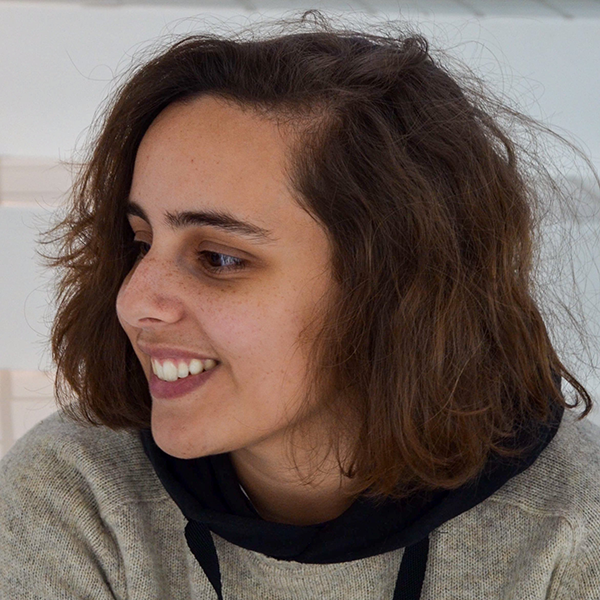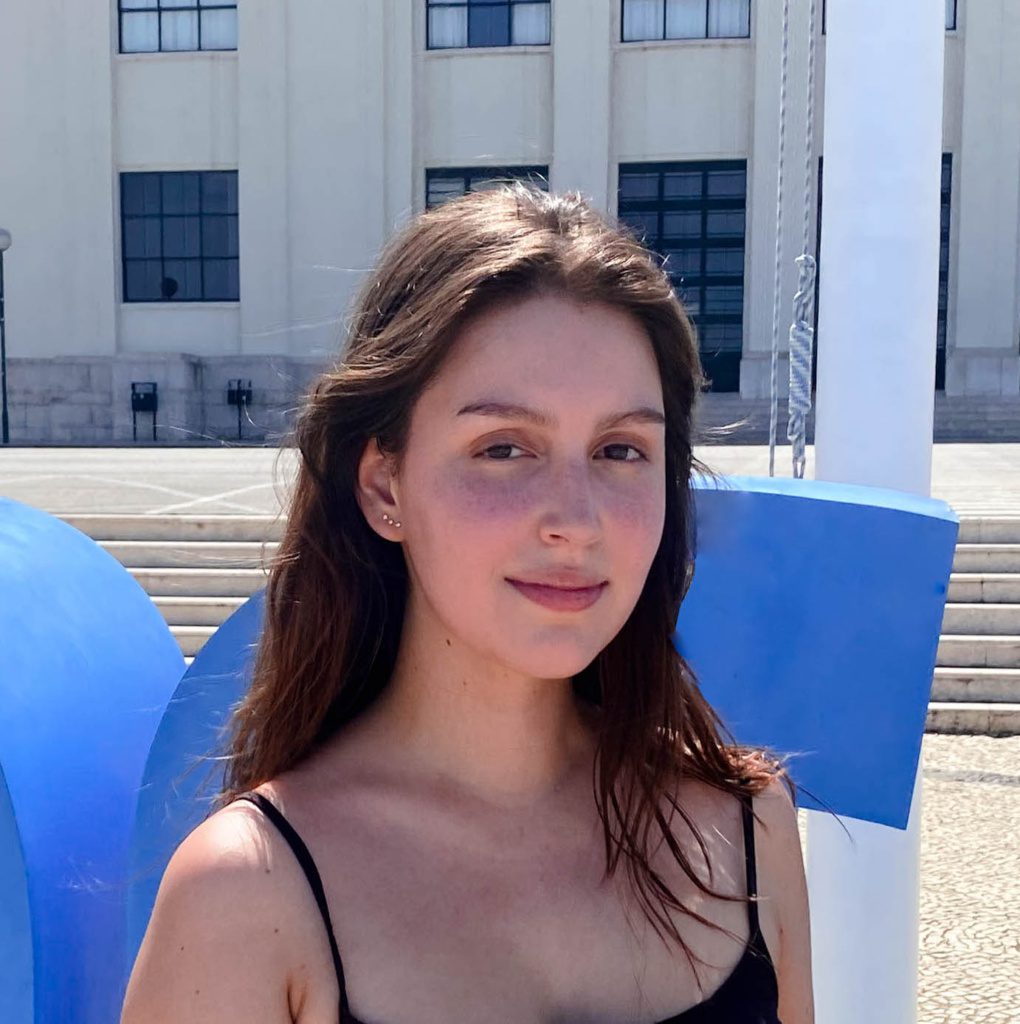29.09.2023
European Researchers’ Night
The Interactive Technologies Institute is joining the project’s main event, European Researchers’ Night in Lisbon. On September 29, Interactive Technologies Institute researchers will showcase their work to the thousands of event visitors, strengthening our close connection with society.
The Institute is demonstrating four diverse hands-on activities available at Príncipe Real Garden, ranging from augmented reality, inclusive robotics, gender disparity and climate change.
Gender disparity in the design of new technologies
Coordinated by Ana Henriques, this activity will feature an installation with textual and audiovisual content and hands-on activities that illustrate how the design of our daily lives, the technologies we use, and the interfaces with which we communicate with the world, with others and with ourselves, perpetuates oppressive notions of gender. These will include clear examples of how technology development did not consider women’s needs, such as the design of new smartphones, clothing and even seat belts.
The importance of whales in climate change
Finding Arcadia is a prototype developed by Marta Ferreira to improve interaction with and communication about climate change data. This project focuses on the importance of oceans and marine ecosystems for global climate and CO2 capture, particularly on whales as an integral part of that ecosystem. This public experience comprises a touchscreen display, where the audience engages with an interactive data story related to the oceans. Storytelling, visual communication and data visualisations are explored in a symbiotic narration of the data. A tangible component to the installation allows for further consolidation of the information after the interaction with the digital story.
Escaping the Shark – A game with neurodiverse roots
Patrícia Piedade worked with neurodivergent and neurotypical students and used a commercial robot (Ozobot Evo) to create a board game about sustainability and oceans. The game development was mainly driven by the students’ preferences, including the topics and game mechanics. The game includes augmented reality and will be available for visitors to play.
BreastPlus – Augmented Reality at the Service of Breast Reconstruction
Daniel Lopes is coordinating this demo to reveal some benefits of using augmented reality technologies for breast reconstruction. Using special glasses (HoloLens 2), the participant will have “X-ray vision” to visualise anatomical structures under a patient’s skin and, in addition, will be able to interact with virtual 3D objects with their hands.
Be sure to visit the Interactive Technologies Institute at the European Researchers Night in Lisbon.
